Squaric Acid Chemical Raw Material Squaric Acid Dibutyl Ester,Quadratsaeure-ethylester-anilid,CAS NO: 2892-62-8,Molecular formula: C12H18O4,CAS NO. 42132-09-2,Molecular formula: C12H11NO3 Chemtarget Technologies Co., Ltd. , https://www.dgtbcb.com
Ultimate List Of Janitorial Supplies To Make The Job Easier
Maintaining a clean and hygienic workspace is no small feat. Many business owners and managers find themselves overwhelmed by the task of keeping their buildings spotless. Fortunately, janitorial supplies can make this process much more manageable.
Choosing the right janitorial supplies can significantly enhance the efficiency and effectiveness of your cleaning crew. Below is an ultimate checklist to help streamline your cleaning efforts.
With the proper janitorial supplies, you can maintain a clean and sanitary environment in no time. Whether it's disinfectants, mops, or brooms, having the right tools ensures everything stays organized. Continue reading for a comprehensive list of essential janitorial supplies to simplify your cleaning routine.
### What Is A Janitorial Supply?
A janitorial supply refers to any product designed to facilitate cleaning within an office or building. Common examples include cleaning cloths, mops, brooms, vacuum cleaners, and more. These supplies are crafted with affordability in mind and can typically be found at major retailers like The Home Depot or online platforms like Amazon.
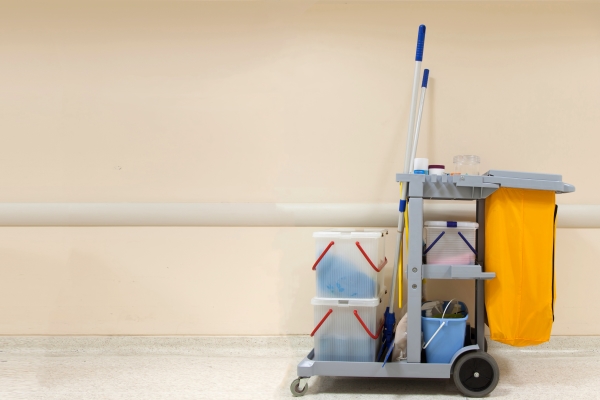
### Why Do Businesses Need Janitorial Supplies?
Every business requires janitorial supplies to sustain its operational efficiency. A clean workplace fosters productivity and reflects professionalism. If you wish to establish credibility and attract clients, maintaining a tidy office is non-negotiable.
### Differences Between Janitorial Supplies And Office Supplies
Though similar in appearance, janitorial supplies differ fundamentally from office supplies. While office supplies include items like paper, ink, and toner, janitorial supplies encompass tools such as mops, brooms, and vacuums. It’s crucial to recognize these distinctions to ensure you’re investing in the correct products tailored to your specific needs.
### Types Of Janitorial Supplies
The market offers a wide range of janitorial supplies. Understanding their functions can lead to smarter purchasing decisions, saving both time and money in the long run. Here’s a breakdown of the most prevalent types:
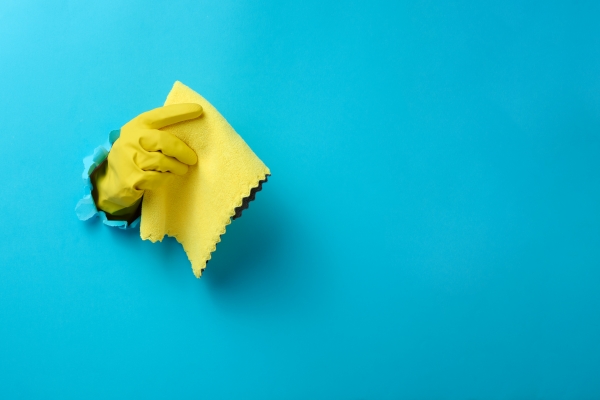
#### Cleaning Cloths
Essential for any cleaning kit, cleaning cloths come in paper or fabric forms. They assist in wiping down various surfaces, from countertops to floors and windows.
#### Brooms
Designed to sweep floors and dust surfaces, brooms vary based on their intended use. Some are ideal for sweeping floors, while others excel at removing dust from walls and furniture.
#### Mops
Mops serve to clean floors effectively. They can be made of hard plastic, rubber, or fabric depending on the model purchased.
#### Vacuums
Vacuums cater to carpeted areas, hard floors, and even upholstery. They provide thorough cleaning solutions for diverse surfaces, though they aren’t suitable for every surface type.
### Tips For Buying Janitorial Supplies
Armed with knowledge about what to seek when purchasing janitorial supplies, here are some practical tips to guide your selections.
#### Make A List
Prior to heading out to the store or browsing online, compile a list of required items. This step ensures you stay focused during your search.
#### Keep It Simple
Avoid overbuying. Less is often more when it comes to janitorial supplies. A compact mop or vacuum suffices for smaller spaces, whereas larger establishments may require multiple units.

#### Shop Online
Save time and energy by shopping online at stores like Amazon. This approach often yields better pricing compared to traditional brick-and-mortar visits.
#### Look For Deals
When shopping online, seek discounts and coupon codes. Websites such as Amazon.com or HomeDepot.com frequently offer attractive promotions.
#### Know The Difference
Reiterating earlier points, recognizing the difference between janitorial and office supplies is critical. This awareness enables better decision-making regarding product selection.
#### Know The Different Types
Understanding the functionality of each janitorial supply prevents unnecessary spending. By knowing which tools are truly needed, you can optimize your budget.
#### Shop Around
For those new to procurement, exploring various sellers provides insights into pricing variations across similar items.
### Which Shops For Janitorial Supplies Are The Best?
Although numerous options exist for janitorial supplies, only a few merchants stand out. In this segment, we’ll review top brands so you can evaluate their offerings and decide which align best with your professional cleaning service requirements.
#### Amazon
Amazon ranks among the premier destinations for purchasing janitorial supplies. Their extensive catalog includes a variety of products, ranging from janitorial tools to general cleaning aids.
#### Home Depot
Another excellent choice is Home Depot, an affiliate of Amazon. Known globally for its vast inventory, you’re almost guaranteed to find everything you need here.
#### Target
Target presents yet another viable option. With numerous locations nationwide, accessing one near your location is straightforward.
#### Walgreens
Walgreens boasts many urban outlets, making it convenient to locate a store close to home or work.
#### Walmart
Similar to Walgreens, Walmart offers extensive citywide coverage, facilitating easy access to their stores.
### Things You Should Never Buy For Your Office Cleaning Supply Purchases
While understanding what to look for in office cleaning supplies is beneficial, it’s equally important to avoid certain pitfalls. For instance, refrain from opting for the cheapest alternatives available. Instead, conduct thorough research to ensure you acquire high-quality items within your budget.
Moreover, excessive spending isn’t advisable either. Janitorial supplies are meant to aid in maintaining cleanliness without imposing undue financial strain. Therefore, splurging on items like cloths or brooms is unnecessary. Instead, explore budget-friendly alternatives.
Here are a few items you should avoid purchasing for your office cleaning needs:
- **All-purpose cleaners**
- **Glass cleaner**
- **Carpet cleaner**
- **Furniture polish**
- **Window cleaner**
- **Multi-surface cleaner**
Using the appropriate product guarantees thorough cleaning and safeguards your surfaces.
### The Ultimate Cleaning Supplies Checklist

#### Mops And Brooms
A reliable mop is indispensable in any cleaning setup. Opt for models featuring robust heads capable of enduring frequent use.
For expansive areas, brooms prove invaluable. They’re best suited for floors and walls, requiring less maintenance than mops. Unlike mops, brooms don’t necessitate post-use rinsing.
#### Buckets
High-quality buckets are essential for transporting cleaning agents and solutions. Seek models with sturdy handles and stable bases.
#### Vacuums
An efficient vacuum cleaner is mandatory for any cleaning arsenal. Prioritize units offering strong suction power and durable bags or filters.
Vacuuming heavily trafficked zones, such as hallways or offices, poses challenges. For instance, daily foot traffic can lead to accidents.
To address this, employ large-capacity vacuums. Powerful motorized versions excel at covering extensive regions. For confined spaces, handheld vacuums suffice.
Before tackling high-traffic zones, clear away furniture and bulky items. This precaution ensures safe operation while minimizing floor damage.
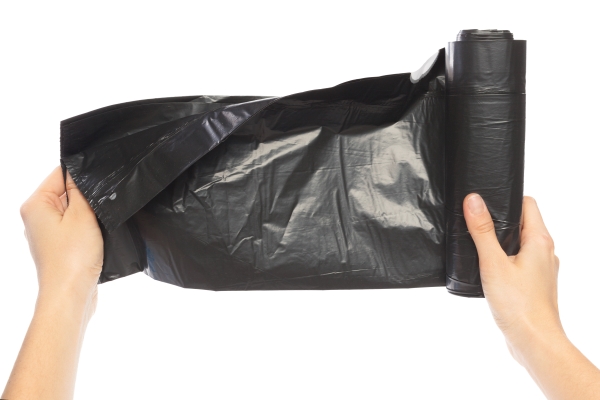
#### Trash Can Liners
Indispensable in any cleaning station, trash can liners should be thick and durable enough to endure heavy usage.
Handling heavy refuse can consume considerable time if liners tear under pressure.
#### Protectors
Protective coverings preserve furniture against prolonged use. Latex coatings prevent stains from setting into covers during spills.
Such covers exhibit color changes upon contamination or sterilization, simplifying maintenance tasks.
#### Apron And Gloves
Depending on workplace conditions, an apron might be necessary to shield garments from spills. Rubber gloves are equally important when dealing with chemicals or cleaning agents. They safeguard against potential harm from these substances.
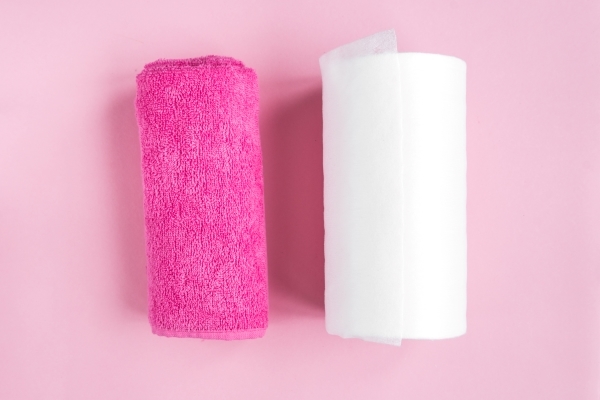
#### Paper Towels
Paper towels offer a quick and efficient method for tidying up messes. They’re also space-efficient, making them ideal for households, small businesses, and cleaning teams alike.
Alternatively, reusable cleaning cloths present a more eco-friendly option. They can be laundered and reused multiple times.
#### Cleaning Solutions
A premium-quality cleaning agent is fundamental to any cleaning cabinet. Choose formulations that are potent yet safe to utilize.
Given the diversity of surfaces janitors encounter, various cleaning agents exist catering to distinct properties and concentrations. However, the most cost-effective solution might not always yield optimal results.
Budget-friendly options tend to lack the efficacy of pricier counterparts. Any product promising extraordinary breakthroughs or novel technologies signals inferior quality.

#### Where To Purchase Goods
Supermarkets and big-box stores traditionally serve as primary sources for janitorial cleaning solutions. Despite higher overhead costs linked to advertising and consultancy fees, these outlets occasionally offer competitive pricing for bulk purchases.
In contrast, corporate and institutional buyers benefit from deeper discounts when sourcing directly from major suppliers online. Big-box store prices can drop significantly.
#### Where To Find Further Information
Websites specializing in product comparisons provide detailed reviews of leading brands across categories like water-based, alcohol-based (Floor Finish Removers), solvent-based, area rugs, and upholstery leather cleaners.
These platforms also disclose ingredient details to steer clear of carcinogenic compounds such as benzene or aldehydes.
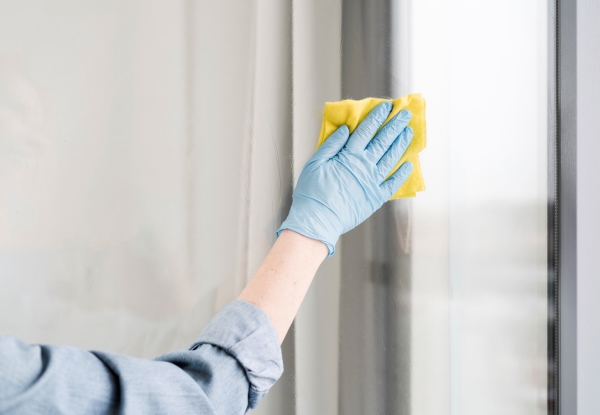
#### Disinfectant
Among the most vital items on your list is a disinfectant. As its name implies, disinfectants eliminate bacteria and viruses, proving useful for sanitizing purposes. Nevertheless, improper application of some disinfectants can pose risks.
Before applying a disinfectant, ensure your hands are clean. Washing thoroughly with soap and water is paramount to prevent bacterial transmission. Alternatively, you can disinfect surfaces by dampening a cloth with the solution and wiping them clean.
For hard, nonporous surfaces, disinfectant wipes prove convenient. These paper-based products come in various scented formulations. Easy to deploy, simply wipe once and disinfect with another swipe.
#### Detergent
Like disinfectants, detergents contribute to surface cleansing and stain removal. Both liquid and powdered varieties serve this purpose.
Liquid detergents prove easier to apply since they can be sprayed or poured directly onto surfaces. Powdered detergents, however, boast higher concentration levels, making them preferable for extensive cleaning tasks.
For high-volume buildings, powdered detergents represent the optimal choice. They’re also safer than liquids, requiring minimal dilution. Safety becomes particularly crucial when addressing flooring, as spilled liquid detergent could result in severe injuries.
To safely clean floors, you’ll need to dilute powdered detergents. Equip yourself with a bucket, spray bottle, and floor squeegee. Place the squeegee in the bucket filled with water. Add your diluted detergent and let it settle for several hours. Finally, employ the squeegee to eliminate dried detergent residue.
#### Spray Bottle
Spray bottles offer an excellent means for disinfecting surfaces or tackling large-scale cleaning projects. Carry one in your cleaning kit or use it indoors or outdoors during maintenance routines.
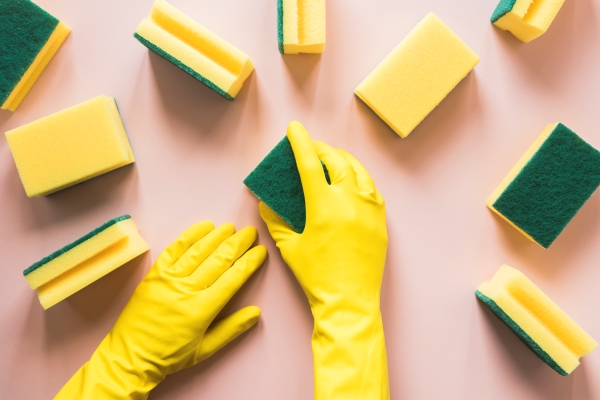
#### Sponges
A dependable sponge forms an integral part of any cleaning arsenal. Opt for models noted for resilience and superior cleaning performance.
Sponges excel at window cleaning, table maintenance, and other tough surface treatments. Additionally, they serve well for personal hygiene purposes.
#### Scrub Brushes
A high-grade scrub brush ranks as indispensable in any cleaning inventory. Look for models equipped with robust bristles suited for heavy-duty applications.
Scrub brushes shine when tackling tubs, showers, and toilets. They also function admirably on floors and other rigid surfaces. Disposable toilet brushes are available if reusing scrub brushes proves undesirable.
#### Squeegees
A robust squeegee constitutes a must-have in every cleaning station. Seek designs boasting durable blades capable of enduring regular use.
Squeegees shine when employed for window and mirror maintenance. They also facilitate moisture removal from floors and other surfaces.
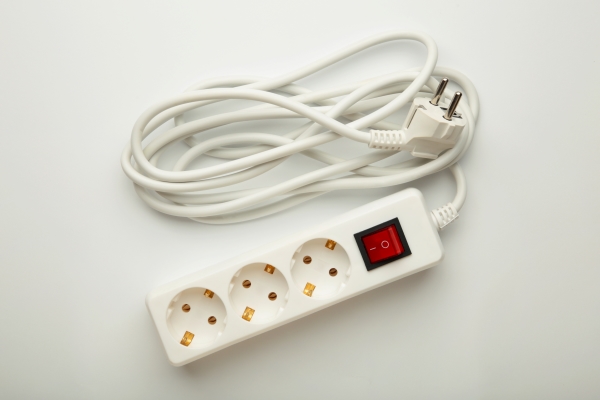
#### Extension Cords
Extension cords rank as a necessity in any cleaning outfit. Ensure they extend sufficiently to reach all parts of your facility.
Extension cords prove invaluable for large-area cleaning or accessing elevated spots. They also power janitorial machinery like vacuums and floor buffers.
#### Safety Supplies
Safety equipment remains a prerequisite for any cleaning storage area. Select items that combine effectiveness with ease of use.
Safety supplies protect both you and others during cleaning activities. They also assist in managing spills or other hazards.
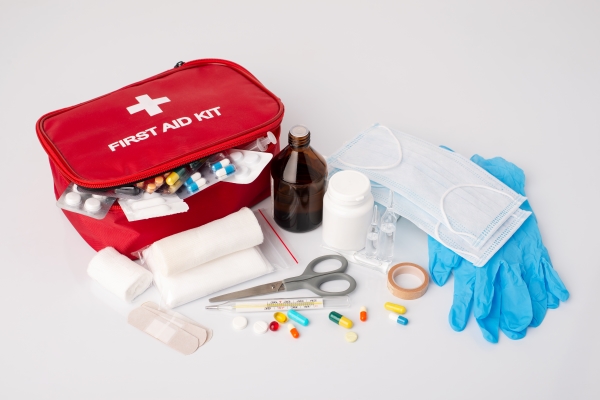
#### First Aid Kit
A fully stocked first aid kit belongs in every cleaning supply cabinet. Opt for kits that are comprehensive and user-friendly. Such kits are ideal for addressing minor injuries and illnesses.
#### Fire Extinguisher
A readily accessible fire extinguisher represents another essential item. Choose models that are simple to operate and highly effective. These devices serve to quell small fires effectively.
#### Hazardous Waste Disposal Bags
Hazardous waste disposal bags form an indispensable component of any cleaning setup. Select bags characterized by durability and usability.
These bags facilitate the proper disposal of dangerous materials. They also assist in cleaning up minor spills or other threats.
#### Cleaning Rags
Cleaning rags constitute another staple in cleaning inventories. Seek materials that absorb efficiently and remain durable under repeated use.
Cleaning rags suit spill management and general surface polishing duties.
#### Floor Buffer
A floor buffer ranks as a must-have for any cleaning department. Choose units that are intuitive to operate and deliver tangible outcomes.
Floor buffers excel in large-area cleaning or hard-to-reach zones.
#### Organizers And Shelves
Ample storage space keeps basic cleaning supplies organized. Avoid cluttering living rooms or kitchens with cleaning tools.
If sufficient room exists, consider installing shelves. These aids in categorizing supplies logically by type.
### Factors To Consider When Buying Janitorial Supplies
Every enterprise depends on janitorial supplies for seamless operations. Yet, not everyone qualifies to procure these items. Ensuring acquisition of the right supplies at fair prices demands careful consideration.
Suitable cleaning supplies must cater to business needs and financial constraints. Numerous factors warrant attention prior to purchasing janitorial supplies.
#### Know The Purpose Of Your Janitorial Supplies
Understanding the intended use of your cleaning tools helps identify necessary products versus superfluous ones. For example, businesses generating substantial paper waste require specialized shredders and cutters.
Similarly, food-related enterprises demand specific equipment for food sanitation and storage.
#### Productivity And Cost-Effectiveness
Given the expense of janitorial supplies, ensuring their productivity and efficiency is vital. Physical inventories can help pinpoint the most effective tools and streamline processes.
Misconceptions abound regarding janitorial supplies. Many assume they’re exclusively for cleaning. However, this notion is incorrect.
Janitorial supplies can support housekeeping, organization, planning, and beyond. Their utility hinges on how innovatively they’re applied.
#### Ensure Proper Disposal
Supplies retain value over extended periods. Once obsolete, they must be disposed of responsibly. Improper disposal risks resource wastage and environmental contamination.
Proper disposal entails placing items in designated receptacles and following recommended protocols. Throwing them casually into trash bins is unacceptable.
#### Durability And Safety
Safety assumes paramount importance when dealing with janitorial supplies. Ensuring durability and safety requires conducting physical inventories and procuring resilient, secure products.
The best approach involves assessing existing stock and acquiring durable, safe alternatives.
#### Know The Right Suppliers
This point bears repeating—your choice of supplier hinges significantly on the criteria discussed earlier. Identifying appropriate vendors guarantees access to quality supplies at reasonable rates.
You can locate suppliers online or consult peers familiar with these products. Conducting independent research and comparing prices among competing vendors is also prudent. New cleaning business owners might find cleaning business software beneficial in identifying top suppliers.
#### Check The Quality Of Supplies
Quality remains pivotal when selecting janitorial supplies. However, this criterion is subjective, varying according to individual needs, budgets, and preferences.
Blindly trusting reviews or inventories won’t suffice. Assessing product quality personally is imperative. Consulting others who regularly utilize these items offers valuable insight.
#### Set A Budget Before Buying Supplies
This aspect stands as the most crucial factor to ponder during procurement. Establishing a budget beforehand prevents overspending and unnecessary acquisitions.
Two advantages arise from budgeting: preventing excessive expenditures and avoiding redundant purchases. Planning meticulously ensures adherence to financial limits. Creating realistic, adaptable budgets aligns with specific requirements.
#### Janitorial Supplies: The Safety Hazards You May Not Know
When picturing commercial cleaning roles, images of individuals clad in white uniforms, wielding vacuums and mops, spring to mind. Yet, another dimension of cleaning often overlooked involves maintenance.
Many remain unaware of the dangers posed by janitorial supplies. However, these hazards exist.
Janitorial workers frequently interact with harmful chemicals and toxins. Consequently, the likelihood of adverse effects remains high. This section highlights pertinent information about janitorial supplies to promote safety.
#### The Dangers Of Using Janitorial Supplies
Using janitorial supplies carries risks of chemical burns, inhalation, and ingestion. Inhalation occurs upon breathing in fumes, whereas ingestion happens when consuming or drinking chemicals.
Annually, U.S. janitorial personnel suffer injuries or fall ill due to janitorial supplies misuse. Consequences include ruined attire, skin damage, burns, and vomiting.
According to the National Institute for Occupational Safety and Health (NIOSH), common hazardous substances in janitorial supplies cause burns, inhalation, and ingestion.
#### Which Chemicals Are In Janitorial Supplies?
Let’s examine prevalent chemicals found in janitorial supplies. These substances can inflict injuries, burns, and inhalation risks.
- **Hydrofluoric Acid**: Causes severe skin and eye burns. Damages internal organs like kidneys, lungs, and gastrointestinal tracts. Linked to cancer.
- **Carbon Monoxide**: Colorless and odorless, toxic to nervous systems. Overexposure leads to dizziness, headaches, nausea, unconsciousness, and possibly death.
- **Toluene**: Results in dizziness, headaches, coordination loss, nausea, vomiting. Severe instances trigger seizures, comas, or fatalities.
- **N-Methylpyrrolidone (NMP)**: Commonly used as a disinfectant. Causes dizziness, nausea, vomiting, diarrhea.
#### Things To Remember When Working With Janitorial Supplies
Adhering to safety guidelines when handling janitorial supplies safeguards health and well-being.
- Wear protective gloves when employing chemicals. Respirators or masks further prevent chemical entry.
- Dispose of supplies cautiously post-cleaning. Avoid pouring chemicals down drains or leaving them in trash bins.
- Have medical assistance readily available. Prompt care mitigates risks associated with accidental injuries.
- Familiarize yourself with worker rights. Understand procedures for reporting unsafe conditions or practices.
- Comply with employer safety regulations. Adherence minimizes chances of accidents or illnesses.
#### Signs Of Janitorial Supplies Hazardous Waste
Recognizing indicators of hazardous waste in your premises is crucial.
Alert authorities immediately if any of the following occur:
- Employees report illnesses or injuries following chemical exposure.
- Complaints surface concerning chemical burns or lingering bleach odors.
- Instances arise involving employees vomiting during cleaning or requiring emergency care due to vomiting.
- Inspectors discover hazardous waste in the building.
- The janitorial firm employs hazardous waste generators.
#### Protect Yourself From Janitorial Supplies Hazards
Minimizing exposure to hazardous materials requires diligence.
- Utilize gloves during cleaning. Respirators or gas masks provide additional protection.
- Refrain from eating or drinking while cleaning. This practice reduces ingestion risks.
- Always wear safety gear while performing tasks. Protection minimizes head injuries or other mishaps.
- Dispose of hazardous waste correctly. Never discard chemicals down sinks or leave them unattended. Leaks could ensue.
- Report unsafe conditions. Inform supervisors about situations causing concern. Collective vigilance enhances workplace safety.
#### Safety Gear For Janitorial Supplies
Safety always takes precedence when managing chemicals and equipment. Wearing appropriate safety gear is imperative when handling cleaning supplies.
Protective gear like masks, gloves, and eyewear shields users from harmful chemicals and minimizes injury risks.
Handling janitorial supplies isn’t solely about cleaning—it’s also about safeguarding oneself and others.
#### What Is The Purpose Of Safety Gear?
Protecting skin, eyes, and respiratory systems becomes essential when interacting with chemicals. Safety gear fulfills this role. Acting as a barrier, it prevents injuries resulting from improper tool usage.
Each industry adheres to distinct safety standards. This piece addresses janitorial supplies safety protocols.
#### Benefits Of Safety Gear
Numerous stories highlight the advantages of safety gear. One common tale involves a worker injured through chemical exposure.
Upon removing eye protection, the worker encountered a highly toxic substance. Though rare, such incidents do happen. Medical expenses and lost workdays can be avoided with proper gear.
Another benefit involves enhanced productivity. Wearing protective gear encourages caution while manipulating chemicals and machinery.
A key advantage lies in reducing accident risks. Mindfulness while wearing safety gear decreases chances of collisions or harming others.
#### Different Types Of Safety Gear
Selecting suitable safety gear hinges largely on chemical resistance levels. One prominent type includes respirators. These filter out hazardous airborne particles and typically pair with face masks.
Respirators come in disposable, reusable, and hybrid formats. Selection depends on anticipated duration of use.
Next, hand protection deserves attention. Workers frequently suffer cuts or blisters. Years of usage often lead to calluses.
Gloves offer defense against these issues. Various styles suit differing tasks like cleaning and chemical handling.
Gloves vary widely in design and material. Choosing options fitting your needs and budget is advisable.
#### Hearing Protectors
Hearing loss ranks among the most prevalent occupational injuries. Its impact on quality of life cannot be overstated. Hearing protectors diminish noise levels, reducing hearing loss risks.
Protective gear comes in earplug or earmuff varieties. Available in diverse sizes and configurations, selecting optimal models requires considering usage patterns.
#### Footwear
Long-standing standing duties often culminate in backaches, arthritis, and foot injuries. The best preventive measure involves wearing proper footwear.
Three footwear categories suit janitorial roles: safety shoes, medical shoes, and cleaning shoes. Choosing the right kind aligns with specific needs.
#### Lock-On Grips
Lock-on grips provide a convenient method for securing tools. Tool usage demands caution to avoid self-inflicted or accidental harm.
Lock-on grips feature varied designs. Some possess plastic handles that flip down to fasten tools securely. Others incorporate lock-on buttons serving as locking mechanisms.
Lock-on grips prove especially advantageous in janitorial contexts. They prevent injuries during tool utilization.
#### Tips For Wearing Safety Gear
Caution knows no bounds when employing safety gear. Familiarity with equipment and its operation is essential. Knowledge of tool functionalities is mandatory.
Selecting appropriate attire for the task at hand is equally vital. Protective clothing suits warehouse environments.
Undertaking projects demands consistent safety gear usage. Doing so safeguards against injury.
Picking the finest safety gear for janitorial supplies presents challenges. Multiple options exist. This article explores various types, their purposes, and associated benefits.
### Conclusion
Preserve a germ-free environment with these janitorial supplies. Tools like disinfectant wipes, mops, and brooms enable swift, secure cleaning routines.
Before vacating the premises daily, sanitize restrooms and kitchens. This practice helps curb bacterial proliferation within your building.
These represent just a few indispensable janitorial supplies for your cleaning endeavors. Equipped with these items, your team can execute their responsibilities efficiently and effectively.